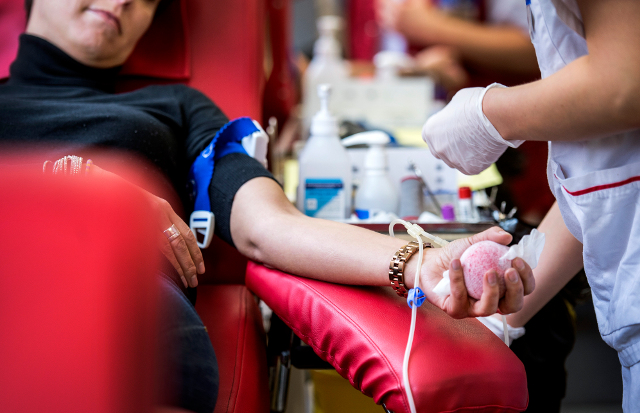When Chinky Jain saw a bloodmobile at her office in Gothenburg, she decided to donate her rare Type O blood.
“I went for the first time as I was a bit underweight before,” she told The Local.
Jain was in the company of a Swedish colleague, an active donor who often received invitations to donate more. But the Indian 29-year-old, who speaks English, not Swedish, was rejected.
Donors need to understand and speak Swedish, the nurse told Jain in “very good” English. She then handed her a printout in English explaining that “the reason for this is to ensure that there will be no misunderstandings from our or your side when going through your health declararion”.
This rejection text is available in Polish, Russian, Arabic, Bosnian and six other languages. But translations of the Swedish health declaration that donors must understand and sign have never been made available.
Jain said she was “a bit upset” and found it “funny” that the rejection was available in English, but added:
“In the end, all rules depend on demand and supply… If they have more demand they will probably change the rules. But my friend said she always gets messages asking for blood, so that means they always need blood.”
Chinky Jain was turned away from a bloodmobile in Gothenburg. Photo: Private
It is the nurse who decides whether the knowledge of Swedish is sufficient, a receptionist at a blood donation station in Gothenburg's shopping centre Nordstan explained when asked by The Local. No strict criteria exist, but understanding only “ja” or “nej” is not enough. Receptionists at a nearly empty GeBlod station at the city's Sahlgrenska Hospital added that foreign donors cannot bring a translator or a Swedish-speaking friend to help out.
Sweden still needs new blood donors
Swedish donors are some of the most active in the world, according to the World Health Organization. GeBlod ('Give Blood'), the main Swedish network for blood stations, states that the country is self-sufficient in blood products. However, it also notes that the number of active donors is decreasing and that the trend is likely to continue.
“There are blood donors quitting every year,” Ulrika Ljung who represents GeBlod in Gothenburg told The Local in an e-mail. “But the need for blood is still high, mainly in the metropolitan areas.”
New tattoos, travels or a cold are among things that can make many donors temporarily ineligible. Others stop donating due to aging, illness, moving house or simply lack of time.
When The Local visited on June 6th, the blood station in Gothenburg's Nordstan unit was packed with both young and senior donors, as well as whole families – a notification that blood was needed in the area had been sent out, the receptionist explained. But due to the language issue, she said she is often forced to reject foreign donors.
Native Swedish-speaker Jörgen Westin, 31, was there to donate and was surprised when he found out about the language rule. He showed The Local a card from GeBlod noting that he had donated 24 times in the past ten years. “You just need to get the information and understand it. But you could do it in English, I suppose.”
English-speakers may be able to donate in Stockholm next year
Plans are in the pipeline to allow English-speakers to donate blood in the Swedish capital.
Beatrice Diedrich, the head of the Blodcentralen blood centres in Stockholm, told The Local that 15 nurses in the city will receive medical English training this autumn, focusing on communication with donors. The health declarations and all other obligatory information have already been translated to English, she added.
The initiative will enable non-Swedish speakers to donate blood at certain times, although a Swedish personal ID number (the ten-digit identification number for residents in Sweden) will still be required.
Representatives of GeBlod in other counties contacted by The Local said they had not heard of such schemes planned anywhere except Stockholm in the near future.

A Swedish woman donating blood in Gothenburg. Photo: Viktoriia Zhuhan/The Local
Jain welcomes the news. But as she is planning to spend Christmas holidays in India, her first and long-awaited blood donation will likely take place in her home country, she said.
Swedish language ability or not, international travellers still face certain hurdles.
In most cases, if you have been to a country outside of Europe you must wait four weeks after returning to Sweden before giving blood. And if you lived your first five years in a Malaria zone and go home briefly to visit, you have to wait three years to donate after returning to Sweden.


 Please whitelist us to continue reading.
Please whitelist us to continue reading.
Member comments